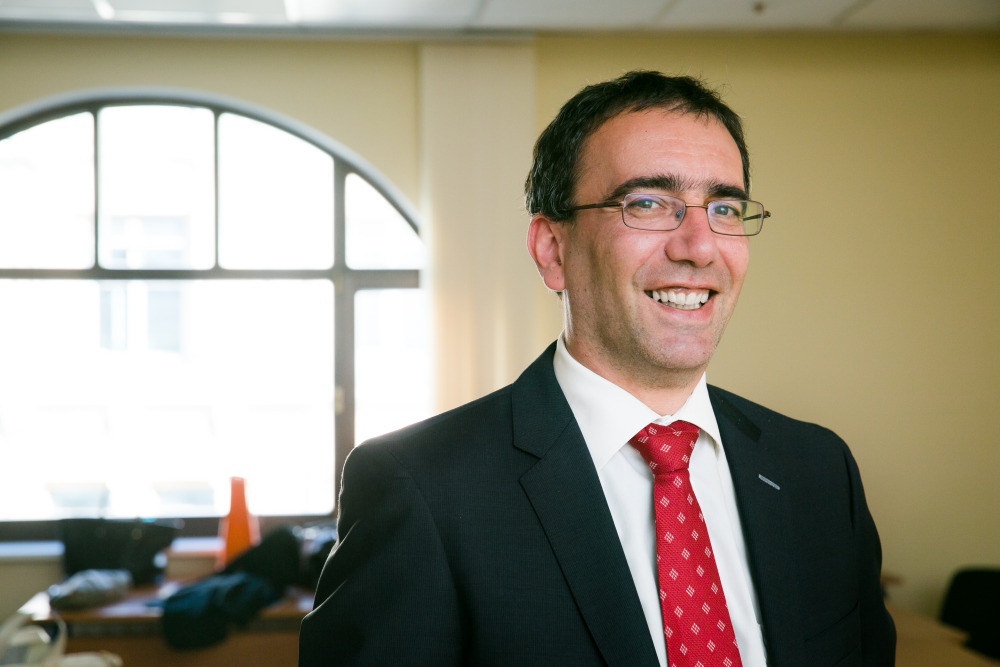HSE Enters Top 50 in THE Young University Rankings Under 30 Years Old
In its 25th anniversary year, HSE has marked new achievements, entering the Top 50 in the Times Higher Education (THE) Young University Rankings among universities under 30 years old, and in the Top 100 in the global Young University Rankings under 50. HSE has become the first Russian university to enter the top list of THE Young Universities, a global institutional ranking.
HSE Research Teams to Receive Russian Science Foundation Grants in 2017
The Russian Science Foundation has announced winners of its latest grant competition to support basic scientific research and exploratory scientific research conducted by research teams.

HSE Leads in 8 Indicators in the Latest U-Multirank Ranking
HSE is among the leaders in 8 out of 35 indicators in the latest U-Multirank ranking, including student mobility, graduate entrepreneurial activity, and income from continuous professional development.
.png)
HSE Enters 13 QS Subject Rankings
The Higher School of Economics has made it onto 13 subject and two subject area rankings in the QS World University Ranking thanks to the university’s achievements as part of the Project 5-100. In addition, HSE was in the top 100 ranking for three subjects – Economics & Econometrics, Politics & International Studies, and Sociology – and it was the only Russian school in the Accounting & Finance 101-150 ranking. As for total number of subject rankings, HSE was third in Russia.
Interdisciplinary Seminar of the Strategic Academic Unit 'Mathematics, Computer Science, and Information Technology'
A regular research seminar aimed at sharing the results of research conducted as part of of the Strategic Academic Unit ‘Mathematics, Computer Science, and Information Technology’ and determining prospective interdisciplinary fields was recently held at HSE. This seminar will be organized regularly by different departments within the Strategic Academic Unit.

Building an International Master’s Programme: Design of Curriculum and Role of Partnerships
Dirk Meissner, Professor at the Institute for Statistical Studies and Economics of Knowledge and the Academic supervisor of the Master’s Programme ‘Governance of Science, Technology and Innovation’, has talked to HSE English-language news bulletin, The HSE Look, about programme development and achievements.
Economic Development vs. Political Instability: Second Meeting of Interdisciplinary Seminar of Strategic Academic Unit 'Social Development Challenges'
On 21 February 2017 the second meeting of interdisciplinary seminar of Social Development Challenges Strategic Academic Unit took place at the Faculty of Social Sciences. Andrey Korotayev, the head of the Laboratory for Monitoring the Risks of Socio-Political Destabilization, presented his report on Economic Development and Social and Political Instability: The Experience of Cross-national Analysis.
HSE Signs Student Exchange Agreement with Chung-Ang University
HSE and Chung-Ang University (Republic of Korea) have signed an agreement on student exchange. As part of of the agreement, three students from the HSE School of Logistics will study in Seoul per semester.
Social Demand for New Technologies
Russians turn out to be rather conservative in their perception of new technologies, innovative products and services, and willingness to use. That was discovered in the course of a survey conducted by the ISSEK experts in the scope of the Monitoring Innovative Behaviour of the Population study (2015-2016). The results are presented in the current issue of the Science, Technology and Innovation newsletter.
.jpg)
Motor Cortex Influences Word Comprehension
Researchers from HSE, Northumbria University, and Aarhus University have experimentally confirmed the hypothesis, whereby comprehension of a word’s meaning involves not only the ‘classic’ language brain centres but also the cortical regions responsible for the control of body muscles, such as hand movements. The resulting brain representations are, therefore, distributed across a network of locations involving both areas specialised for language processing and those responsible for the control of the associated action. The results have been published in the journal Neuropsychologia.
